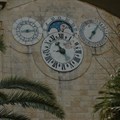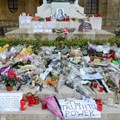A South African's guide to moving to and making it in Malta: Everything's coming up roses
Four dailies
There are four daily papers on the island: Times of Malta (ToM), Malta Independent, L’Orrizzont (The Horizon) and In-Nazzjon (The Nation). The latter two are the party publications of the ruling labour party and the official opposition, the nationalists, respectively. It’s safe to say that ToM is Malta’s newspaper of record analogous to the (former?) positioning of the Cape Times in the Mother City due its long publishing history. ToM is celebrated for never having missed a day’s publication even during the Second World War when Malta was the most bombed nation on earth. ToM’s editorial stance is decidedly critical of the ruling party and the paper is a fine example of the role of the free press in holding government to account.

Let’s look at the news headlines for a random date in September – Friday, 7 September 2018.
ToM leads with a story about … wait for it … fish slime. As unappetising as the subject sounds, it turns out to be a good news story in that the owners of the various fish farms (circular pens located a few hundred metres offshore) have found a commercial proposition for a malodourous by-product of the farming process and have thus been able to monetise what would otherwise have become a form of marine pollution. You can read the actual article here.
Since ToM is tabloid in size (but not orientation), it only features two stories on its front page, which is perhaps apt considering the paucity of what passes for news on our sunny little isle. That second article is ostensibly about criticism of a road-widening project, or more accurately the Church’s reaction to the government works department for commencing construction before a permit had been officially issued. By Church we of course mean the Catholic Church (Malta is 95% Catholic). Malta is in the throes of a €700 million road-development programme and the sacrifice of even one tree in the name of road-widening is treated here with the same seriousness that SA newsrooms report on ‘Land Expropriation without Compensation’. The environmental impacts of our road-widening schemes aren’t just front-page news, they are the subject of op-ed columns, think pieces and fodder for much of the letters to the editor and the comments roll which follows the online posting of the stories. As mentioned elsewhere, these comments inevitably degenerate into partisan mud-slinging even on the most apolitical stories.
The archipelago’s second daily, Malta Independent, also leads with the fish farm story. This is unsurprising since we know from ToM’s reportage that this was a press junket. Resource-poor SA newsrooms would be hard-pressed to spare even a cadet reporter to go off on a three-hour boat trip to look at fish pens, but here on island Malta, with nothing much else to report on, fish slime becomes the catch of the day!
News agendas
The political leanings of the remaining two-party publications are evidenced by their news agendas: L’Orrizont trumpets Malta’s 5,9% economic growth (three times the EU average). What is astounding to me is that I would rank this as the biggest story of the day yet neither of the two ‘independent’ newspapers lead with it. In truth, Malta’s spectacular economic performance is neither rare nor unusual as it has enjoyed a super-powered growth trajectory for the past five years, so perhaps it’s no longer remarkable (as in different) news.
(As a parallel insight, many forms of crime in SA are no longer news because of their prevalence and frequency.)
In-Nazzjon, true to form, manages to reference assassinated investigative journalist Daphne Caruana Galizia (DCG) on its front page.
In life highly critical of Muscat’s labour government, in death DCG has become a by-word for the failure of the ruling party to answer the unanswered questions, not least who ordered the car bombing which took her life.
I cannot leave the subject of Maltese newspapers without taking a trip down memory lane to review the pdfs of ToM’s front pages of 10, 25 and 50 years back.
A half a century ago in 1968 when ToM was still a broadsheet, readers enjoyed a front-page repast of international news events (an Italian coup trial, Swaziland’s independence, Israeli/Arab tensions, etc).
In 1993, a two-story front page is split between local news (conditions at Malta’s only jail) and international (Libya). Already in that second story, the focus has moved from the event (UN sanctions) to the Maltese angle on the news (what the GWU’s position is on the UN sanctions).
By 2008, the pivot is complete: all the news is local. Island Malta has become the centre of the universe.
This is Part Two of a series on Maltese media. Read Part One, on TV:

























